English Social Robot Application
UX · Web App
Introduction
English Social Robot is a robot designed specifically for
kindergarten student and
primary
school students. Its primary function is to facilitate English language learning in
an
engaging and interactive manner.
The English Social Robot is equipped with various technologies and features to perform a range of functions, including:
The English Social Robot is equipped with various technologies and features to perform a range of functions, including:
- Using AI cameras to identify hand gestures during interactive learning.
- "Text to Speech" capability which allows students to verbally communicate with the robot, providing answers to questions and interacting in real-time.
- Integrating sophisticated language models, such as ChatGPT, into the backend system to evaluate the students' verbal responses, providing immediate and accurate feedback.
- Generating images from a simple description with a text-to-image AI model, enabling the robot to generate pictures and adding a visual dimension to the learning experience.
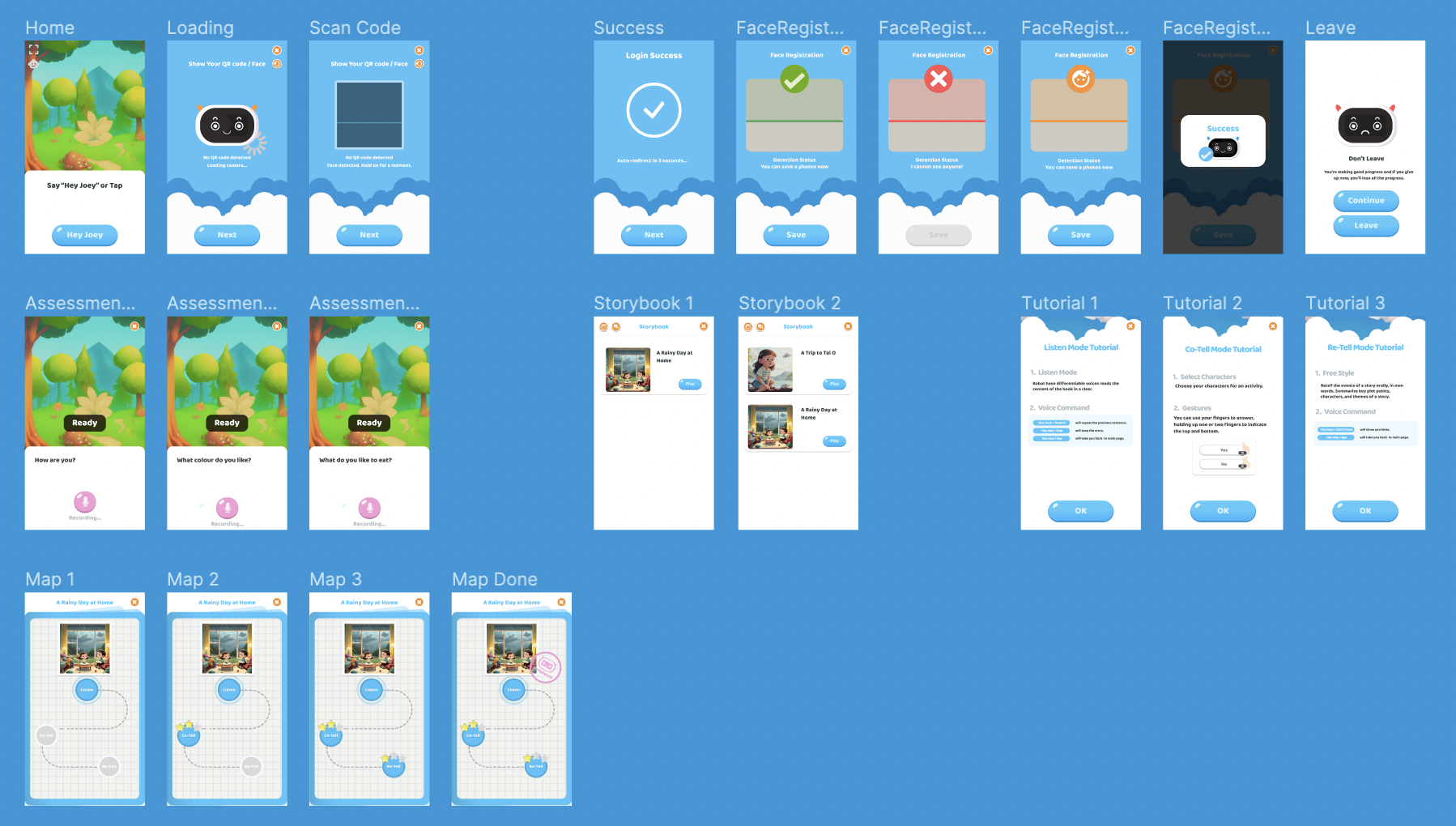
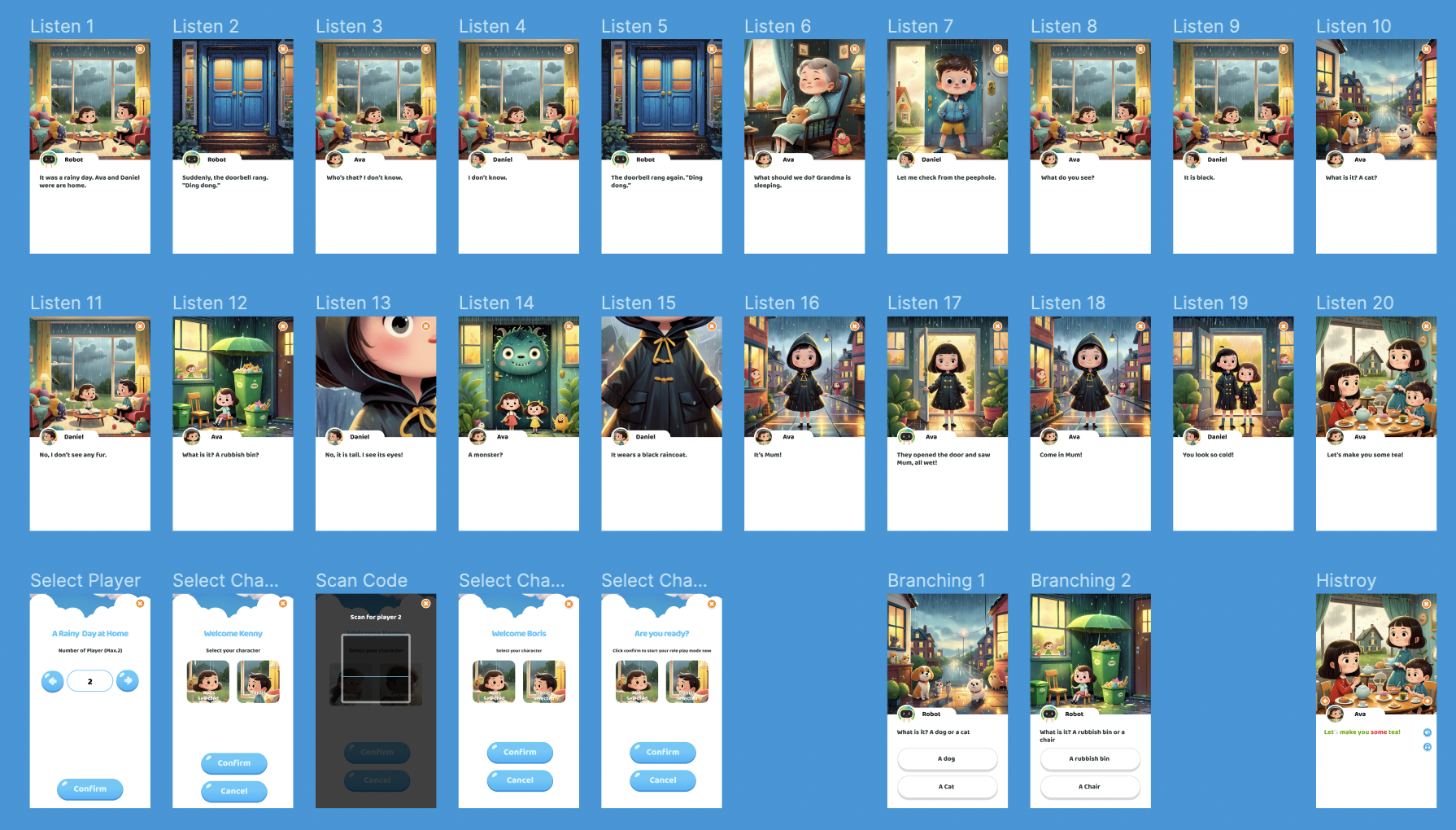
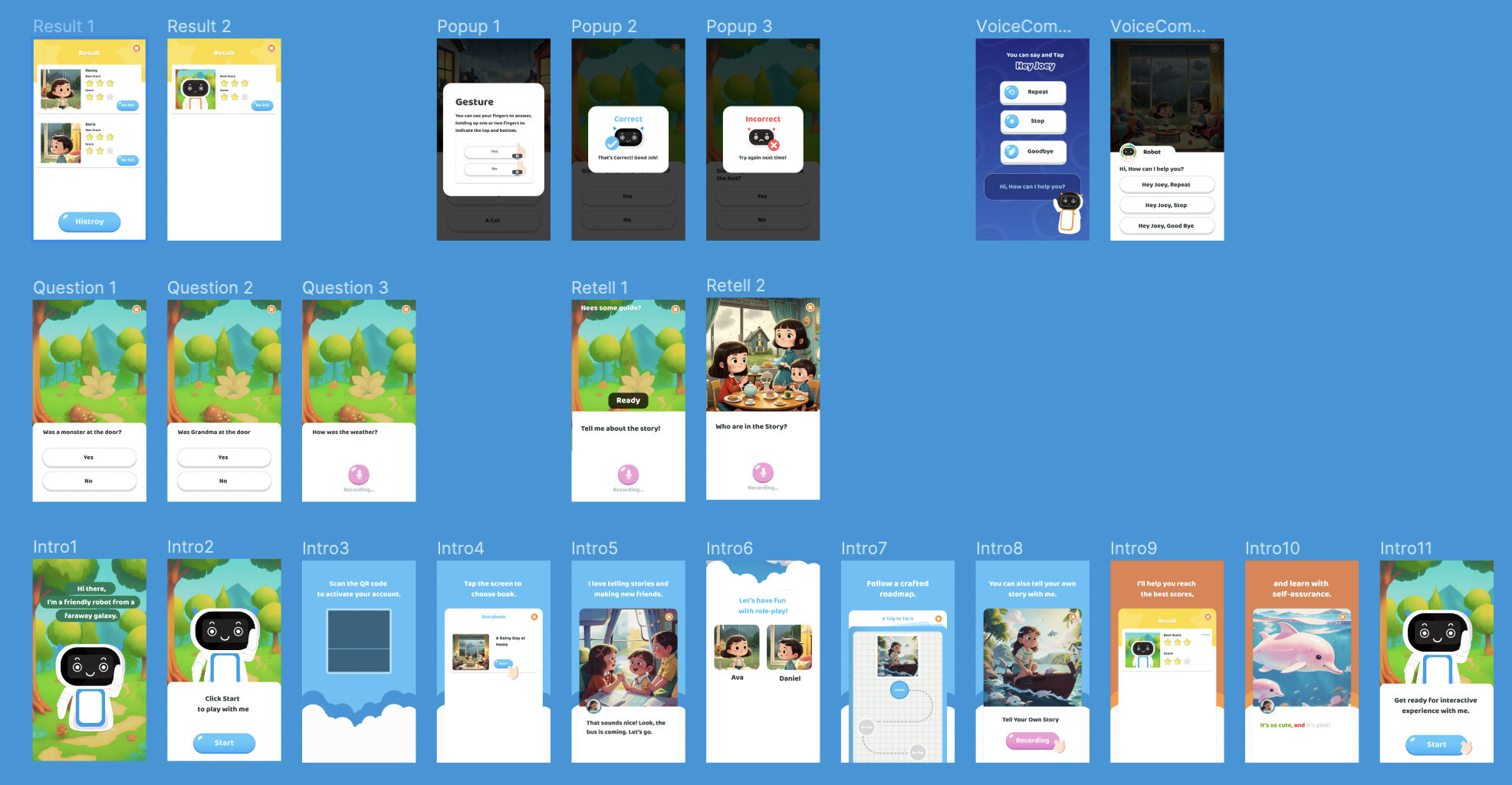
UX Opportunities
user flow revolves around a robot application that offers
various features. It
includes a chat mode where users can interact with the robot through conversation.
Additionally, there is a face registration feature that allows users to register their
faces for personalized experiences.
The application also offers three distinct story modes. The first is the listen mode, where the robot engages users by narrating stories and encouraging active listening. The second is the co-tell mode, which involves branching narratives where users can actively participate in storytelling alongside the robot.
To enhance interaction, the application incorporates a hand gesture feature that allows users to use gestures to control certain actions or trigger specific responses from the robot.
Lastly, retell mode provides a space for children to freely retell their own stories, fostering creativity and self-expression. Additionally, the application utilizes GPT to grade the user's storytelling result, providing feedback and evaluation.
The application also offers three distinct story modes. The first is the listen mode, where the robot engages users by narrating stories and encouraging active listening. The second is the co-tell mode, which involves branching narratives where users can actively participate in storytelling alongside the robot.
To enhance interaction, the application incorporates a hand gesture feature that allows users to use gestures to control certain actions or trigger specific responses from the robot.
Lastly, retell mode provides a space for children to freely retell their own stories, fostering creativity and self-expression. Additionally, the application utilizes GPT to grade the user's storytelling result, providing feedback and evaluation.
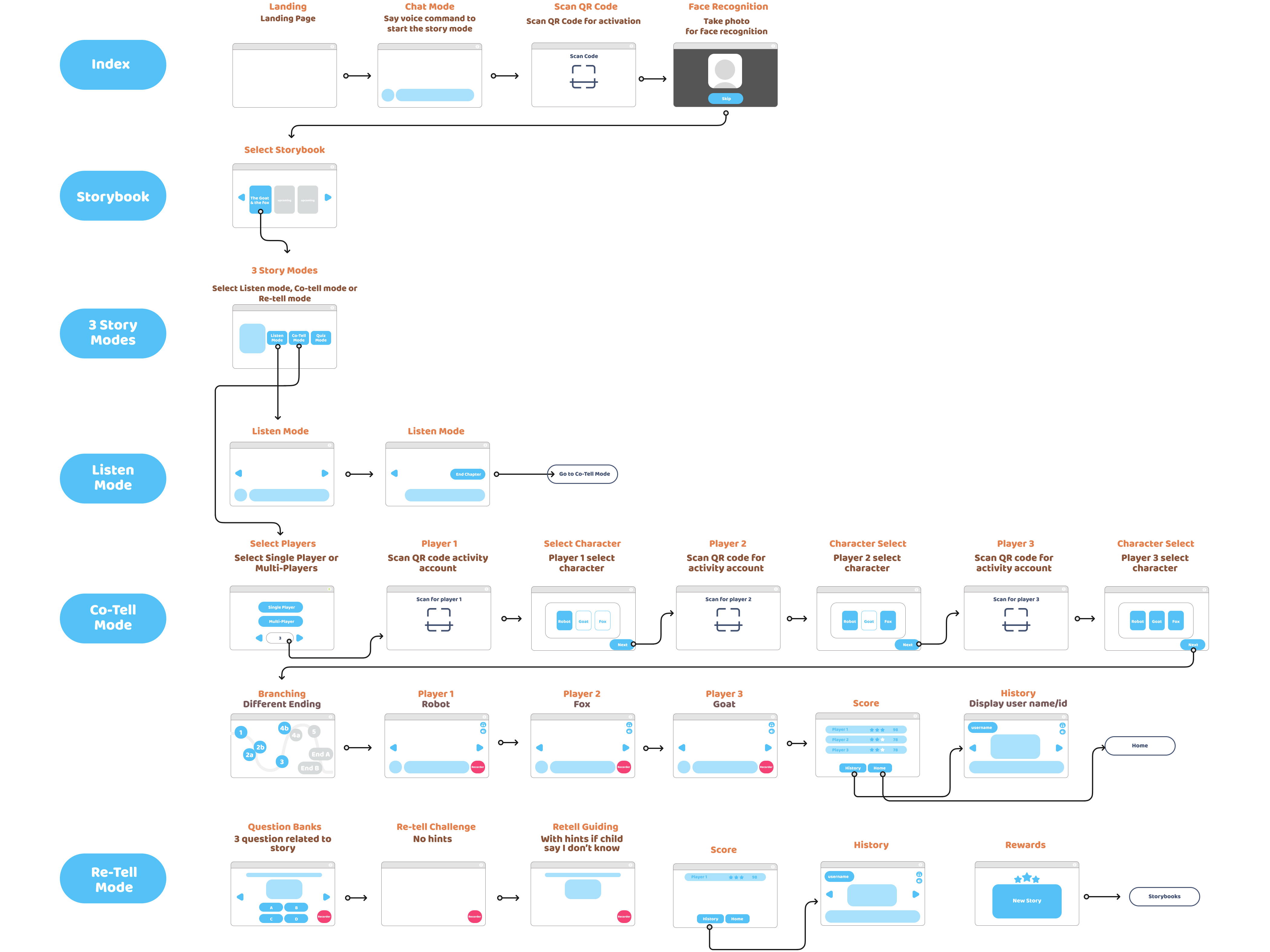
Wireframe of the Robot Application
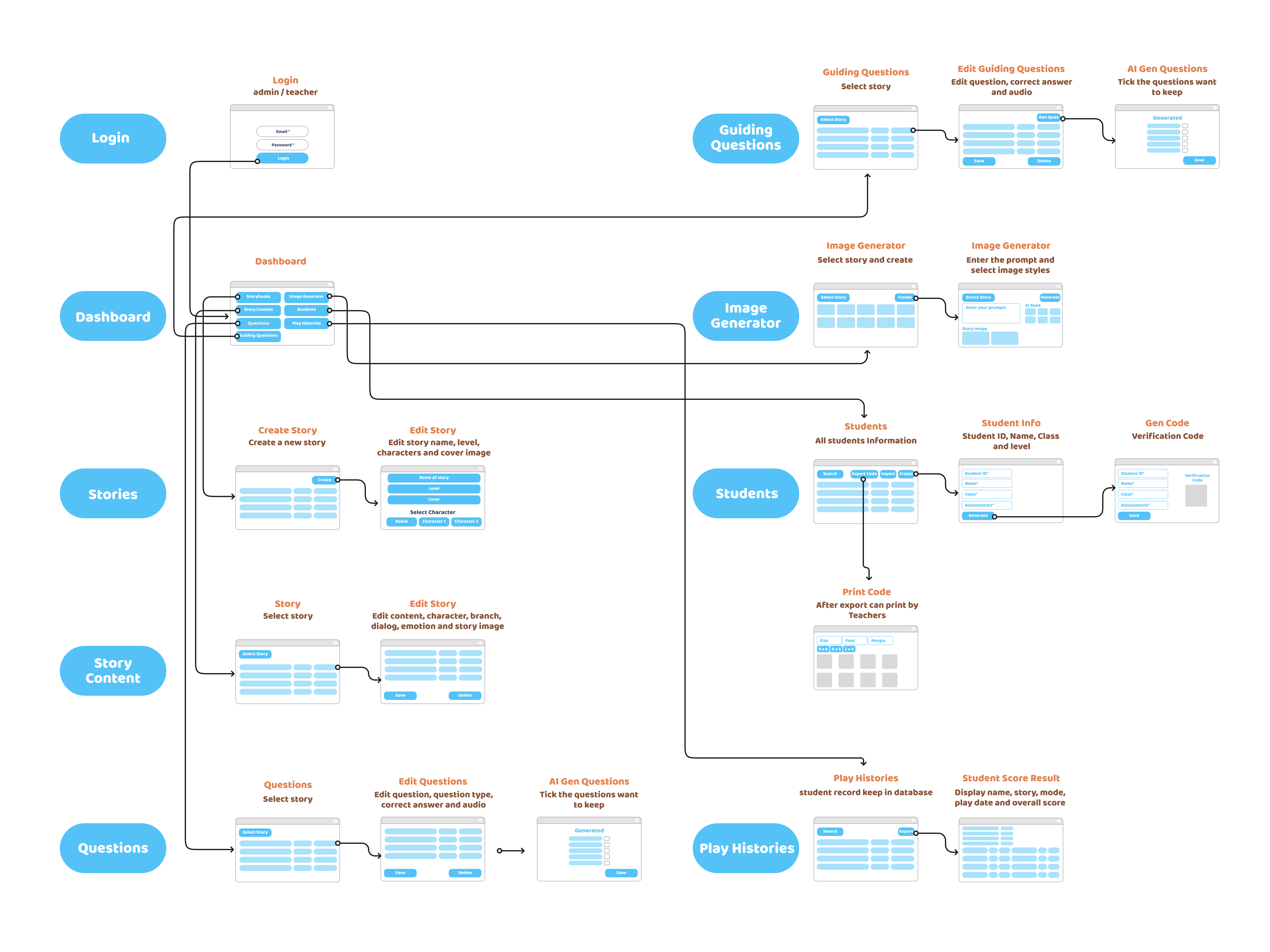
Wireframe of the CMS
UI Components
Designed 72 screens for the english social robot application, utilizing a total of 70
components. These prototypes effectively showcase the functionality of various modules
within the application.
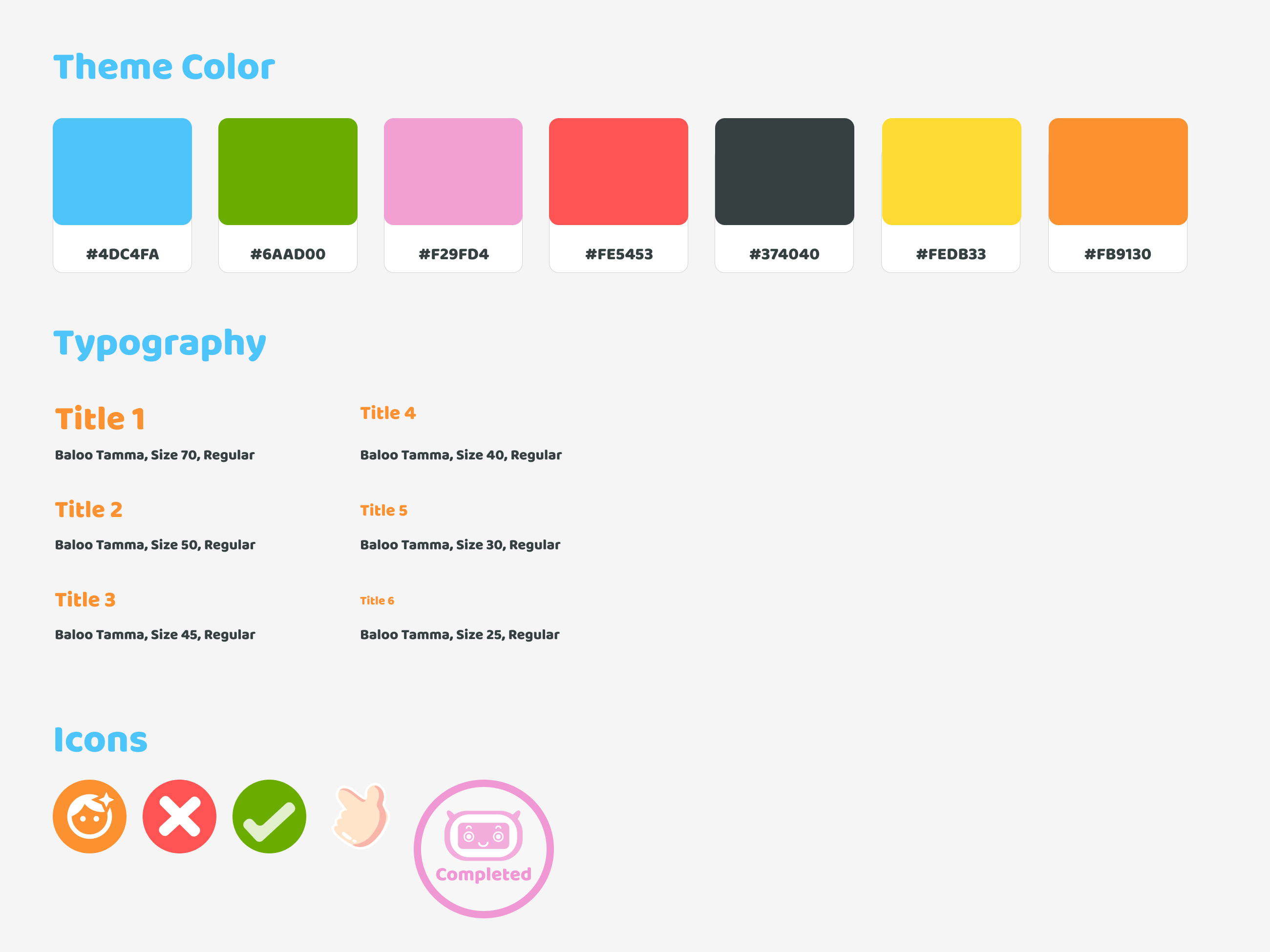
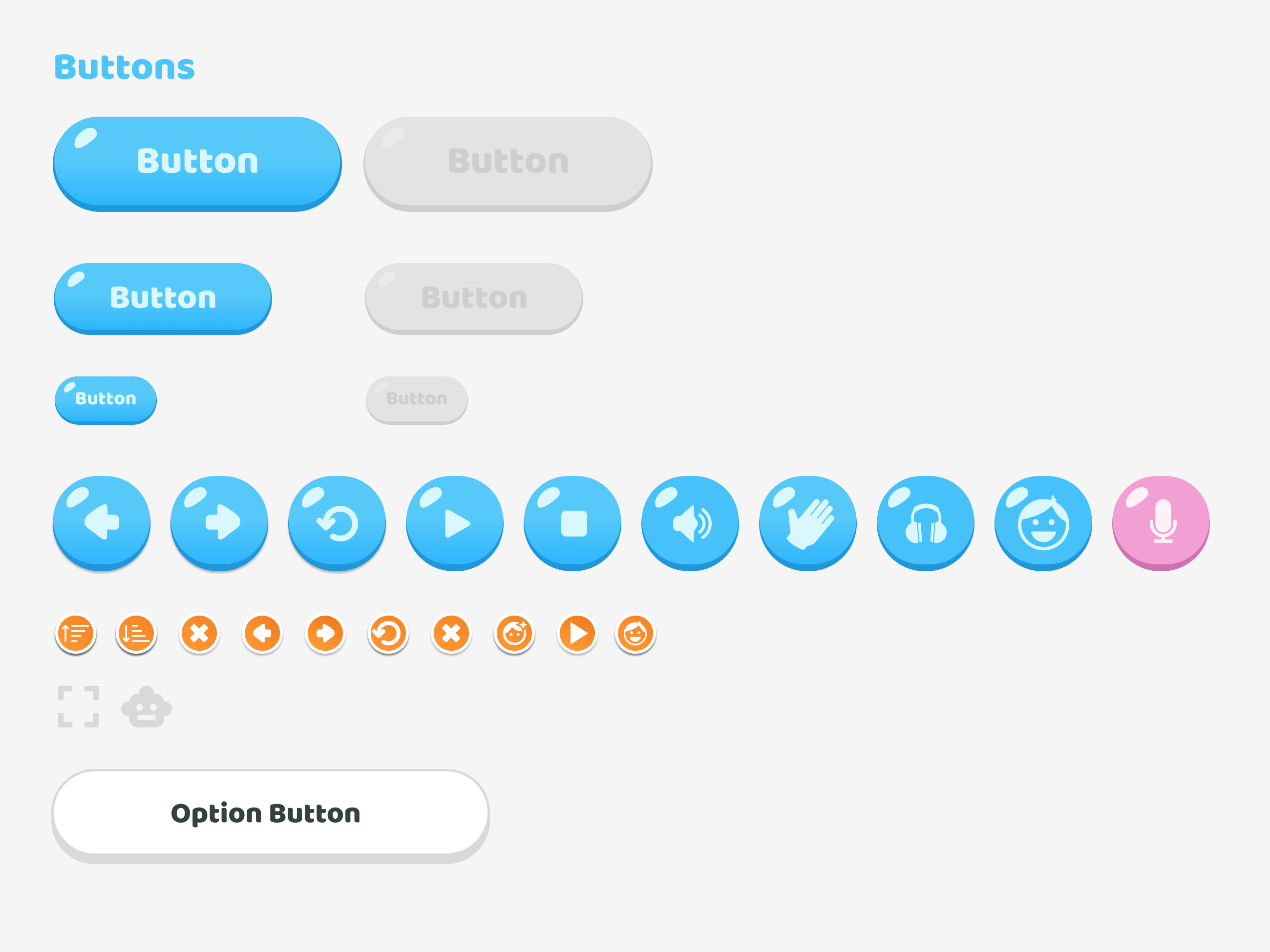
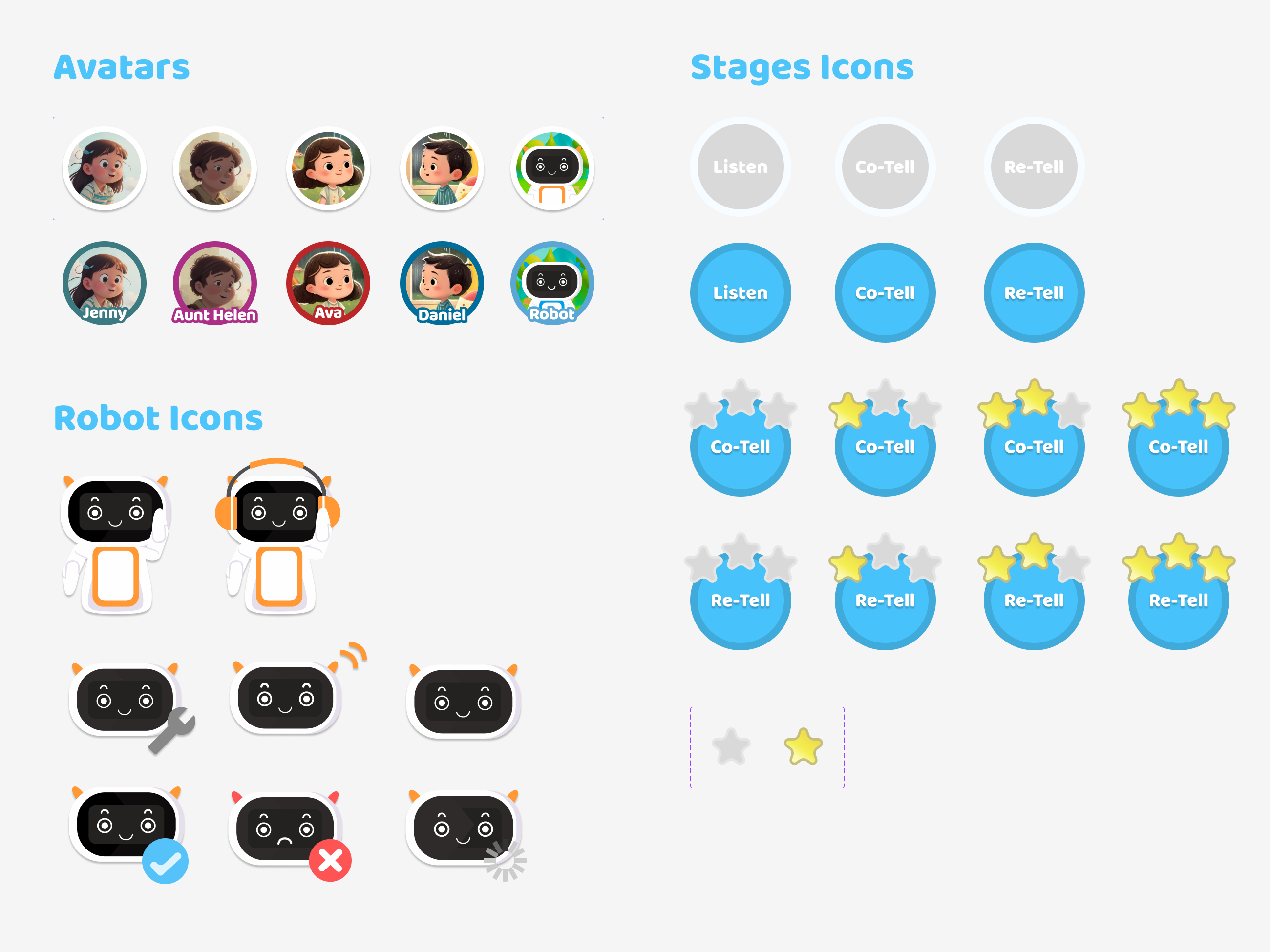
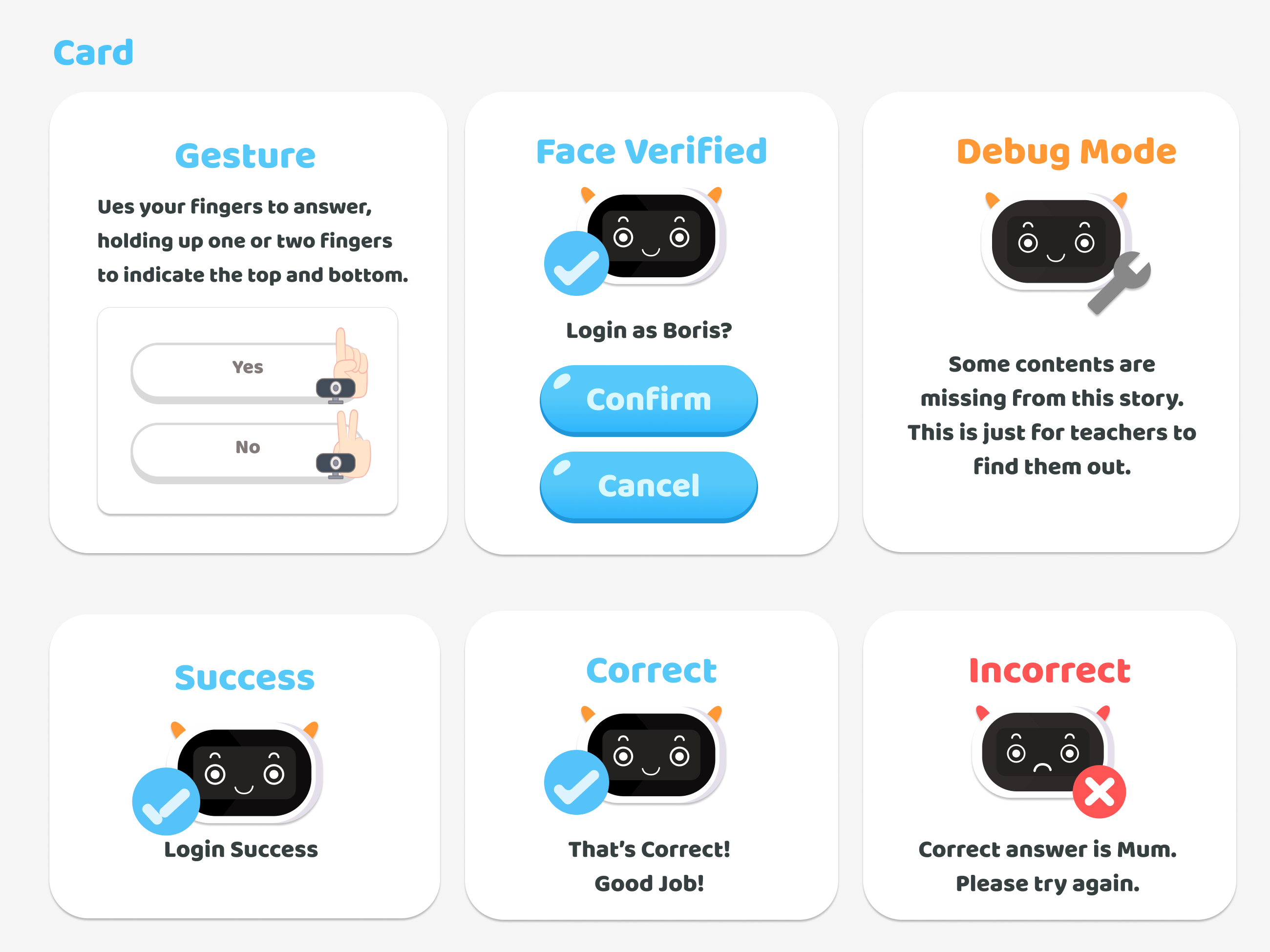
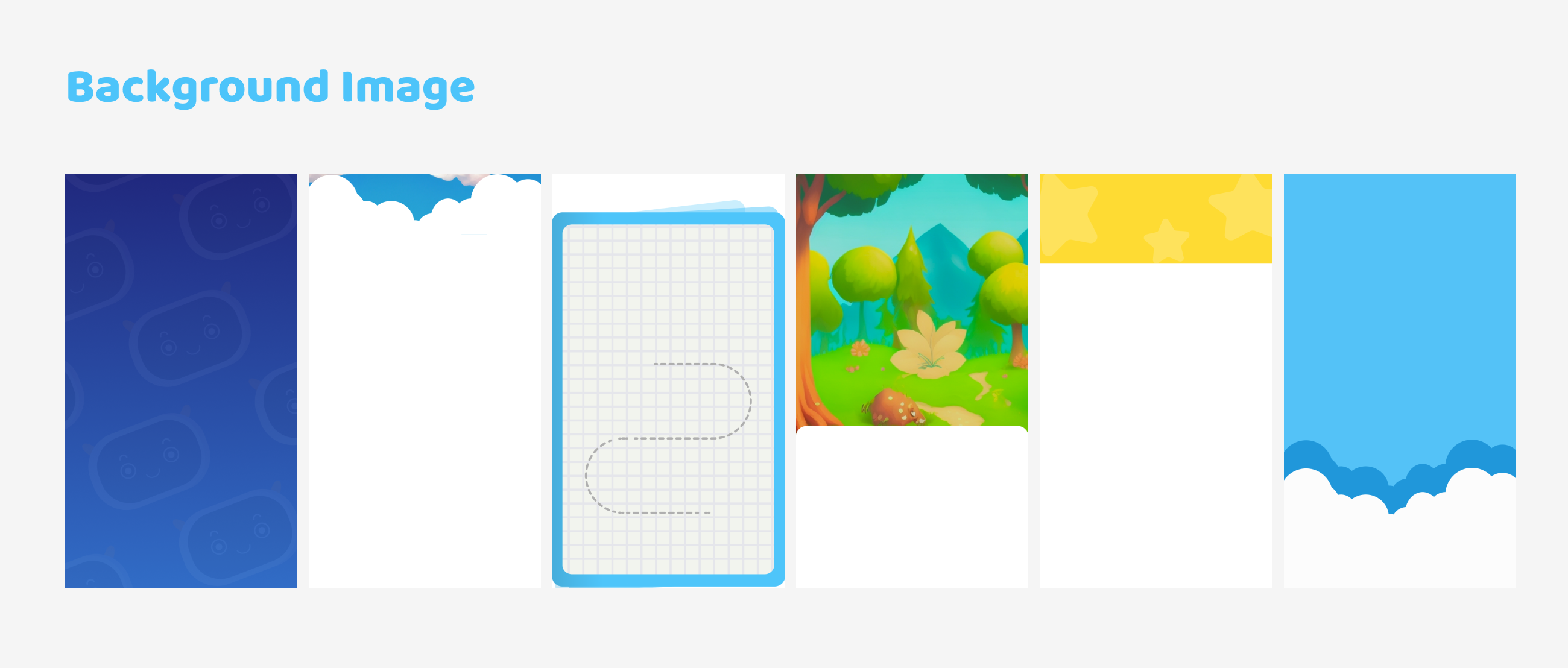
Text-to-Image Generation
Immerse yourself in a groundbreaking learning experience where images come to life
through the power of text-to-image AI models. Witness the magic as the robot
effortlessly generates vivid pictures from simple descriptions, elevating the learning
journey with a captivating visual dimension.
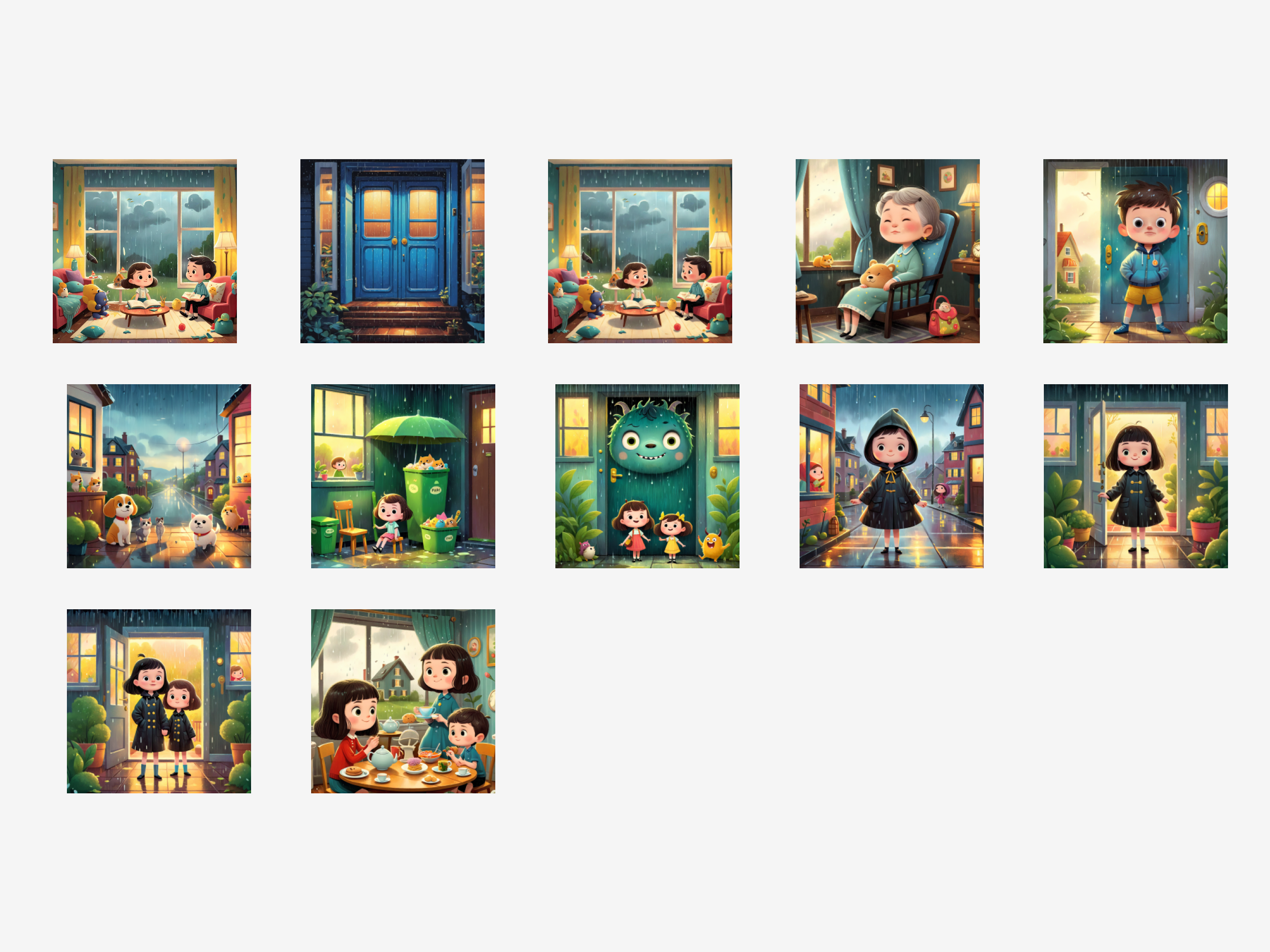
Exploring a Range of Emotions with Robot Facial Expressions
By leveraging advanced technologies and techniques, we have developed a sophisticated
system that allows the robot to display a wide spectrum of emotions, including joy,
surprise, sadness, anger, and many more. Through carefully designed facial movements and
expressions, our goal is to create a more engaging and relatable human-robot
interaction.
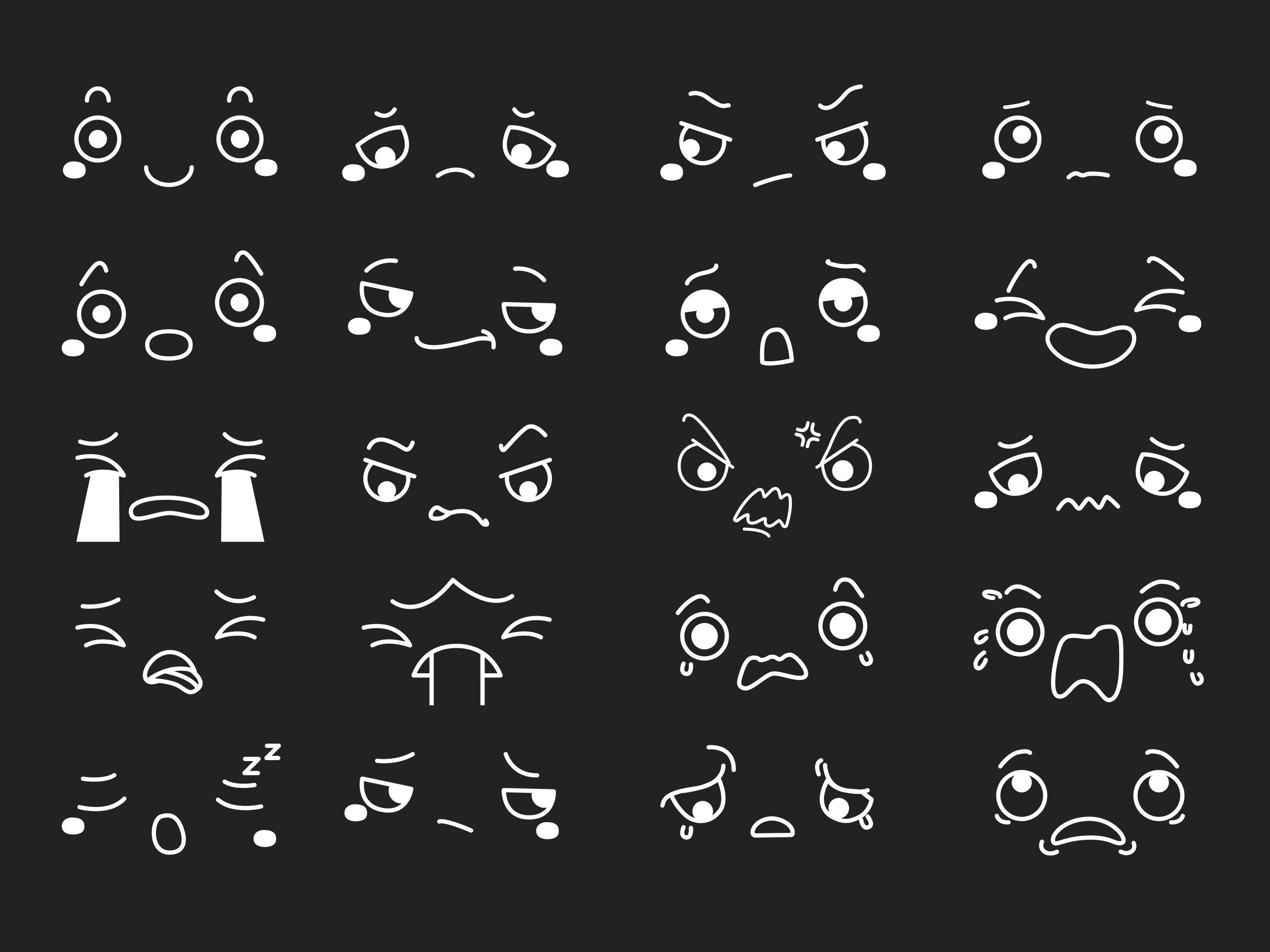

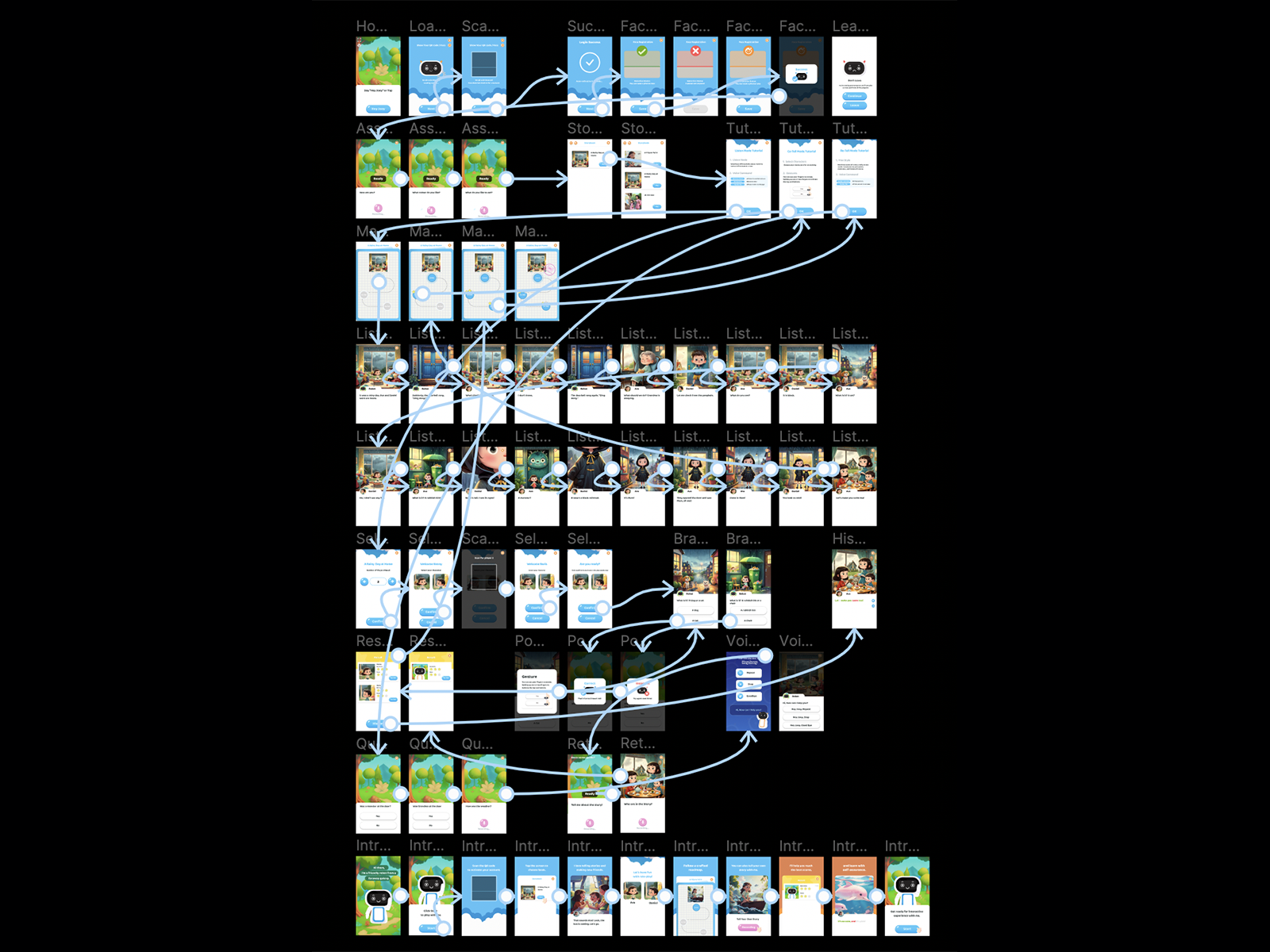
Testing the wireframes as a prototype in Figma
Issue Log
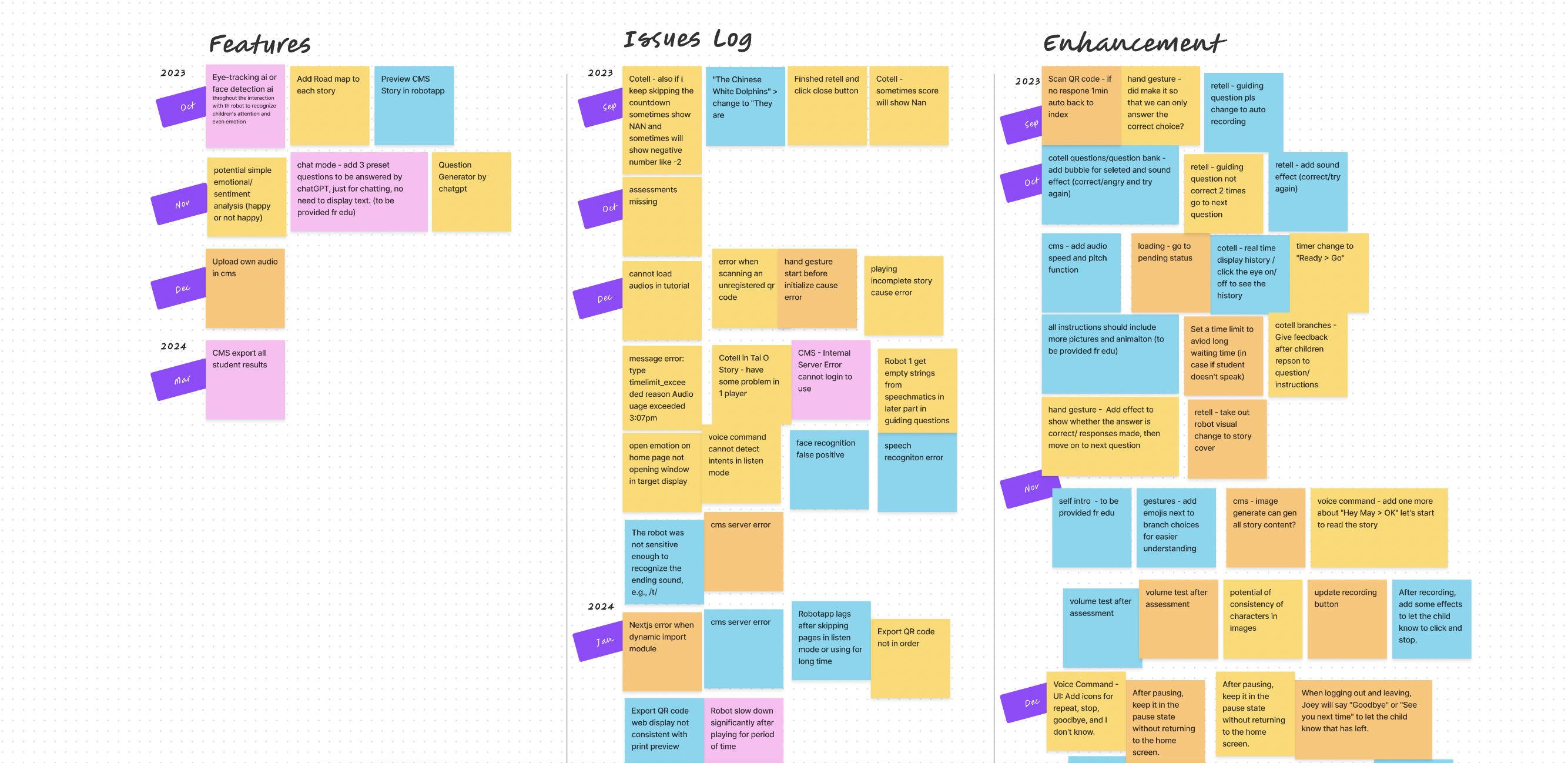
issue log
